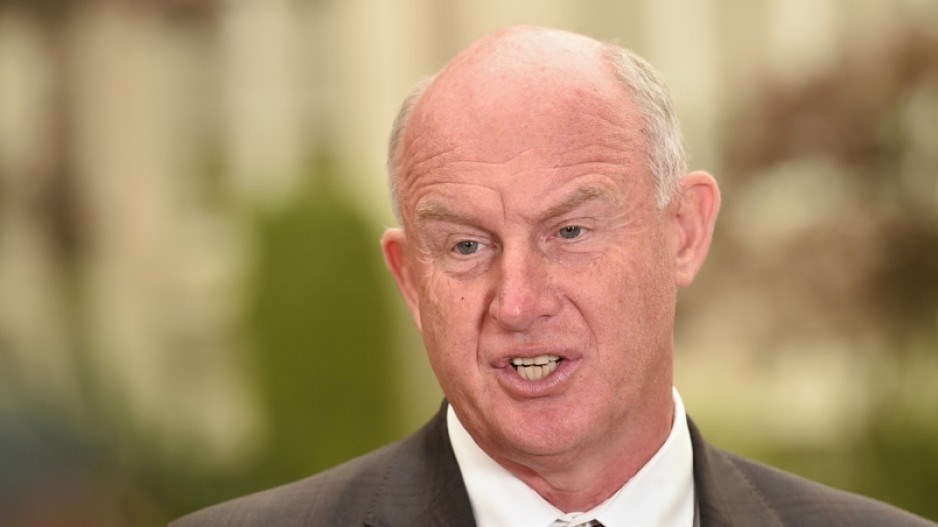The province has announced sweeping measures to centralize B.C.'s COVID-19 response and to prevent the hoarding and resale of food items and medical goods effective immediately, solicitor general Mike Farnworth said Thursday.
The moves - which are all for the duration of the provincial state-of-emergency period launched one week ago - include also a boosted effort to enforce social distancing and the closure of certain public and business spaces, with the province now enabling municipal bylaw officers to enforce provincial laws and issue fines.
In anticipation of the needs for provincial officials fighting the COVID-19 outbreak overspilling existing resources, municipalities are also now asked to identify public facilities that may be available for the purpose of responding to the novel coronavirus pandemic if those steps are necessary. Municipalities are now also required to comply with provincial directives on combating COVID-19, Farnworth added.
”We are at a critical juncture, and we need to ask ourselves if we are doing our part and following the orders of [provincial health officer] Dr. Bonnie Henry,” Farnworth said. “And it has become clear that these additional steps are necessary... Dr. Henry’s orders are not suggestions or good advice; they are the law.”
In order to “avoid anxiety” and centralize the coordination of COVID-19 responses to the province, Farnworth also said all municipal states-of-emergency have been suspended. The notable exception appears to be Vancouver, which derives its state-of-emergency from the Vancouver Charter.
“Let me be clear: There needs to be a coordinated approach based on the best advice and scientific evidence available, and that comes from the provincial health officer,” Farnworth said. "... The message is simple: How we act today will determine our future."
Among the other measures announced is the establishment of a provincial “supply chain coordination unit” that will be in charge of making sure medical goods and some other select products will get to health professionals and others in need. Retail stores are now required to report inventory of critical supplies to the province to ensure availability to frontline health workers.
When asked if the measures to give the province authority to direct supply chains of medical goods to certain specific markets have received the blessing of local business stalwarts like Jim Pattison, B.C. Premier John Horgan said he just recently spoke to Pattison - and that the province has the full support of the business community to do what's necessary with the supply chain to fight COVID-19.
Retailers will now also have to limit sales at the point-of-sale of certain goods to the public to a certain number per person, Farnworth noted, and any municipal restrictions to truck, boat, train and air shipments have now been repealed.
Neither Farnworth nor Horgan, however, commented on a potential response to the announced plan of U.S. President Donald Trump this week that he'd like to see business and economic operations return to normal by Easter. Farnworth only said that the province continues to work in close coordination with Washington state governor Jay Inslee on the situation south of the border.




